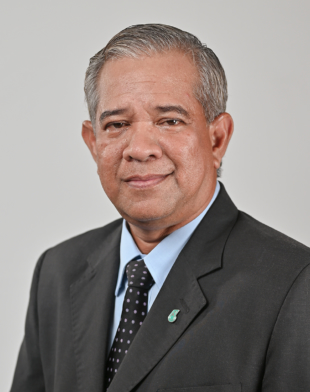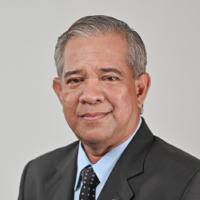The Malaysian multinational oil and gas company Petroliam Nasional Berhad (PETRONAS) has tapped the man who has spearheaded its diverse business interests, including the domestic and global natural gas initiatives and portfolio, to help bring about a cleaner global future. In June, Khairuddin Khalik was named PETRONAS chief representative in Japan, bringing with him over 30 years of experience in roles within the company’s domestic and international operations. In his new role, he hopes to tailor the company’s approach to Japan’s evolving energy needs and expand a mutually beneficial partnership that has continued for more than half a century. The Japan Times was able to interview Khalik recently, and some of his responses are presented here.
JT: How has PETRONAS’ relationship with Japan evolved over the past 50 years, and what are the key qualities that helped sustain this partnership?

Khalik: Japan has been a trusted and valued partner since we first began exporting liquefied natural gas in the early 1980s. Over the years, PETRONAS has evolved from being just a supplier to Japan into a true partner united by a shared vision rooted in reliability and mutual trust. Since our first LNG delivery to Japan in 1983, PETRONAS has grown into one of the world’s leading natural gas providers, a journey closely tied to the trust Japan has placed in us. By leveraging our integrated value chain and offering solutions tailored to Japan’s unique needs, we have been able to support Japan’s energy security, even during challenging periods such as the Fukushima No. 1 nuclear power plant incident in 2011 and during the COVID-19 pandemic.
Over the years, PETRONAS has developed a deep understanding of Japan’s business culture, energy needs and strategic energy plans. This understanding has been crucial in allowing us to tailor solutions that meet Japan’s specific needs and preferences.
In what ways does this partnership contribute to the shared cleaner energy ambitions of both countries?
Our relationship with Japan goes beyond energy supply — it embodies a shared commitment to a cleaner, greener future. As the first ASEAN (Association of Southeast Asian Nations) energy company to pledge net-zero carbon emissions by 2050, we align closely with Japan’s carbon-neutral ambitions. Together, we are exploring new frontiers in hydrogen, ammonia and carbon capture and storage, and investing in renewable energy — efforts that will benefit both our nations for generations to come. Japan’s confidence in our ability to deliver motivates us to continually adapt and meet their evolving needs. Today, we are honored to continue supplying Japan with reliable, lower-carbon energy, contributing to the reduction of dependence on more carbon-intensive sources. The pillars of reliability, sustainability and cultural understanding have enabled us to fuel progress toward our shared cleaner energy ambitions.
What is the state of the LNG market in Japan and how is the company uniquely positioned to help grow it?
In Japan, heat waves increase electricity demand while industrial gas use declines, indicating changing consumption patterns. Amid these challenges, PETRONAS is well-positioned to support Japan’s energy security. With a global production capacity exceeding 45 million tons annually, we offer tailored solutions, including flexible contracts that cover short-, medium- and long-term needs. This ensures a reliable LNG supply that meets Japan’s specific requirements.
How have recent global events, from the COVID pandemic to war in Ukraine, impacted the LNG market and how will PETRONAS address them?
Japan’s LNG market is undergoing significant shifts driven by rising regional demand and seasonal factors, leading to increased contract prices. These changes are further exacerbated by global disruptions such as geopolitical tensions, pauses in U.S. exports and the conflict in Ukraine, all of which have disrupted supply chains, tightened stock, and introduced market volatility. With over four decades of experience in Japan’s market, PETRONAS is uniquely equipped to optimize delivery schedules, ensuring LNG arrives precisely when needed, thereby maintaining stability in both supply and pricing.
Do you feel that your previous work in operations, sales, business development and marketing has prepared you for your role in Japan?
Based on my experience and familiarity with the industry, I recognize that Japan presents unique challenges and opportunities that demand a tailored approach. Japan’s advanced economy, commitment to innovation, and focus on sustainability align well with PETRONAS’ strategic direction, particularly in the realm of cleaner energy solutions. However, Japan’s distinct regulatory environment, competitive landscape and cultural nuances necessitate a customized strategy to effectively grow our business in the country.
In this context, my experience across different regions and fields has provided a broad perspective and a unique skill set that will be invaluable in my new role in Japan. These experiences have honed my ability to navigate complex environments, adapt to diverse regulatory landscapes and drive growth within various cultural contexts.
As chief representative in Japan, what are you most looking forward to and how do you plan to build on this long-standing relationship?
As I take on the role from Ezhar Yazid, I am committed to building upon the strong foundation of trust and cooperation that he has established, while maintaining the robust relationships and effective operations we have developed in Japan.
My goals include collaborating with our Japanese partners to drive innovation in cleaner energy solutions, ensuring the delivery of more sustainable energy sources to Japan. I am also eager to engage more stakeholders, including government bodies, industry leaders and research institutions, to uncover new opportunities and drive collaborative projects that align with our shared goals. Finally, I look forward to further enhancing our business strategies by integrating a deep understanding of both Malaysian and Japanese cultures, ensuring our solutions are precisely tailored to Japan’s unique needs.



